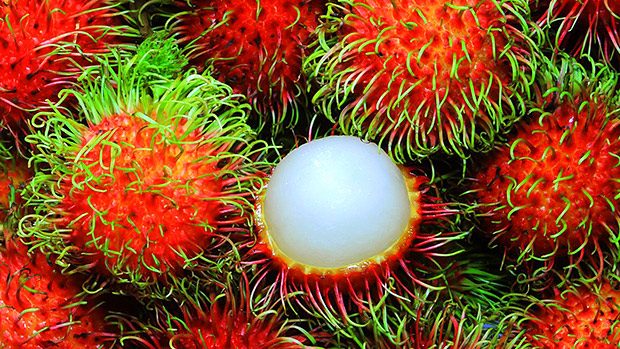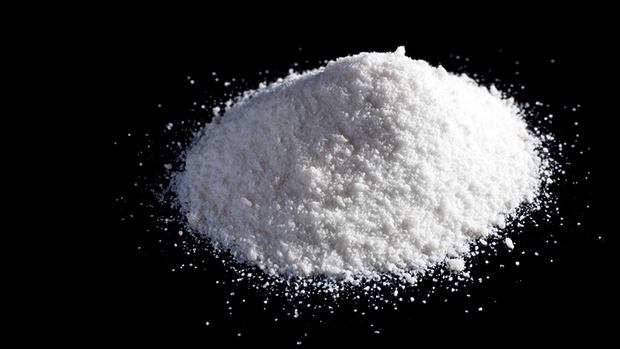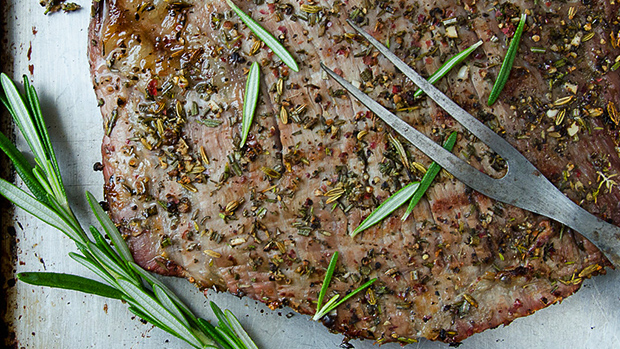The following two paragraphs are from The Fructose Verdict, an article I wrote back in 2013:
"I know people who are so afraid that fructose will ruin their physique that they won't even eat apples. Did you hear me? They won't even eat apples!
"They believe that fructose is preferentially deposited around their midsection and they're absolutely certain that ingesting it, or, gasp, High Fructose Corn Syrup (HFCS), will quickly encase their liver in fat so that it looks like Hans Solo trapped in a block of Carbonite."
Things haven't changed. There are groves of "physique people" who routinely avoid fruit, let alone fructose added to processed foods. Now it's absolutely true that there's evidence that fructose can cause a fatty liver. When ingested, there's an enzyme-mediated process that determines whether or not your liver needs fuel and unless you're really energy depleted, that's where the fructose goes – to the liver.
While not a problem in the short term, fructose can probably funk up your liver function and your overall health if it continues long term. In fact, one endocrinologist even called it "alcohol without the buzz," because fructose is supposedly as damaging to the liver as bootleg hootch.
Let me quickly add that yes, moderate to large amount of fructose from fructose-sweetened beverages and processed foods can affect diabetics adversely, but German scientist have found that it doesn't exactly affect non-diabetics the same way.
Most surprisingly, they found that fructose from fruit or even fruit juice doesn't affect diabetics or non-diabetics adversely. In fact, natural sources of fructose seem to have beneficial effects: they don't affect insulin sensitivity and they actually improve liver values.
What They Did
The scientists brought together 223 patients, 161 of whom had type 2 diabetes and 62 who didn't. They gave certain numbers of them fruits, fruit juices, beverages sweetened with fructose, and even pure fructose. They gave them "normal" amounts and moderate to high amounts.
They measured their "fatty liver index" by recording insulin response (both hepatic and peripheral), their triglyceride and gamma glutamyl transferase levels, their body mass index, and waist circumference, and then they performed multi-variable linear regression analyses.
In short, they studied the hell out of liver responses to fructose from different sources.
What They Found
Each doubling of sucrose plus non-sucrose bound (sucrose is a 50/50 blend of glucose and fructose) and non-sucrose bound fructose ("free" fructose) from sweetened soft drinks increased the odds of type 2 diabetics having a fatty liver by 16% and 17% respectively.
However, each doubling of sucrose plus non-sucrose bound fructose intake from fruits was related to a 13% reduction in the chances of having a fatty liver. And fructose from fruit juices? Not associated with an increase in fatty liver index, either.
Likewise, fructose from either fruits or fruit juices didn't seem to increase insulin resistance.
The researchers concluded that "...the intake of fructose from soft drinks and similarly sweetened beverages appears to have a detrimental affect on peripheral and hepatic insulin sensitivity, even when consumed in very moderate daily amounts. By contrast, fruit-derived fructose was not related to unfavorable metabolic effects and even showed inverse associations with the hepatocellular fat content of individuals with type 2 diabetes."
As far as the non-diabetics, increasing fructose intake from fructose-sweetened beverages lowered the insulin sensitivity of their livers, but not their peripheral insulin sensitivity. In other words, continued intake of moderate amounts of fructose from beverages might cause fatty livers, but not necessarily fatty waists.
However, fructose from fruits and fruit juices didn't have any detrimental effects.
What This Mean to You
Don't drink sucrose or fructose-sweetened beverages – that's what it means to you. You should, however, eat fruits and even fruit juices (while still probably remaining slightly wary of the latter for caloric density, but not detrimental effects to insulin sensitivity).
Fruits and fruit juices contain bunches of polyphenols, which collectively seem to "heal" you from any potentially damaging effects of excess fructose metabolism. As I wrote in The Polyphenol Diet, polyphenols appear to play a big role in causing all of the magical qualities of fruits (and vegetables), whether it be improving cardiovascular health, fighting cancer, or preventing liver disease and stabilizing blood sugar.
Source
- Weber, KS, et al. "Habitual Fructose Intake Relates to Insulin Sensitivity and Fatty Liver Index in Recent-Onset Type 2 Diabetes Patients and Individuals without Diabetes." Nutrients. 2018 Jun 15;10(6).




